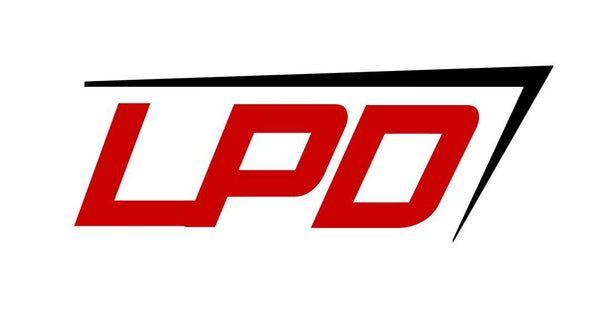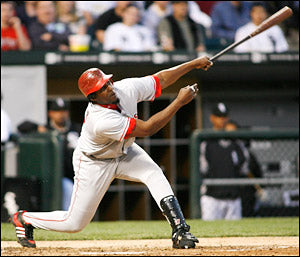Competitive fire can be a powerful motivator, pushing us to work harder, set higher goals, and strive for excellence. However, like any fire, it can also burn out of control and cause damage if not properly managed. In this blog post, we will explore the benefits and drawbacks of having a competitive drive, and how to find a balance to ensure that your competitive fire works for you, rather than against you.

What is "competitive fire"?
Competitive fire can be defined as the passion and determination to succeed in a competitive setting. It can manifest in many ways, such as a desire to win, a drive to improve, or a need to outperform others. It can be a powerful force that helps us achieve our goals and reach new heights of success.
The benefits of having a competitive drive:
Having a competitive drive can be beneficial in many ways. It can help us push ourselves to achieve our goals and reach new heights of success. It can also provide a sense of accomplishment and pride in our achievements. A healthy level of competitiveness can also serve as a motivator, helping us to work harder and strive for excellence. Additionally, it can foster a sense of teamwork and camaraderie, as we strive to achieve common goals and support one another in our efforts.
However, too much competitiveness can have negative consequences. Here are some potential drawbacks of excessive competitiveness:
How competitiveness can lead to negative emotions:
When we become overly focused on winning or outperforming others, we may become anxious, angry, or frustrated when we don't achieve our goals. This can lead to feelings of stress and pressure, and may even affect our mental and emotional well-being.
For example, imagine you are a high-achieving student who is used to getting top grades in all your classes. One day, you receive a grade that is lower than what you expected. Instead of accepting the grade and moving on, you become angry and upset, thinking that your hard work has been for nothing. You start to feel anxious and stressed about your future grades, and this negativity begins to affect your ability to focus and study effectively.
While a certain level of disappointment and frustration is natural when we don't achieve our goals, excessive competitiveness can lead to more severe negative emotions. It can cause us to lose perspective and become too focused on our own achievements, rather than enjoying the process of learning and growing.
The negative impact on relationships:
Another potential drawback of excessive competitiveness is its impact on relationships. When we are too focused on winning or outperforming others, we may become less supportive and collaborative. This can lead to strained relationships with our teammates, colleagues, and even loved ones. It can also create a toxic or unhealthy work or social environment, as individuals become more focused on their own achievements rather than working together towards common goals.
For example, imagine you are part of a team at work that is responsible for a major project. You are highly competitive and want to ensure that your contributions are recognized as being the most important. However, this desire to outperform others leads you to become dismissive of your teammates' ideas and contributions. You become more focused on your own success than on the success of the team as a whole. This behavior can lead to tension and conflict within the team, and ultimately hinder the success of the project.
Finding the balance:
To ensure that your competitive fire works for you, rather than against you, it's important to find a balance. Here are some tips for channeling competitiveness in a healthy way:
-
Focus on self-improvement: Rather than focusing solely on outperforming others, focus on improving yourself. Set personal goals and work towards them, rather than comparing yourself to others.
-
Emphasize teamwork: Recognize that success often comes from working together towards common goals, rather than solely relying on individual achievement. Foster a spirit of teamwork and collaboration, and recognize the contributions of others.
-
Practice gratitude: Rather than focusing on what you don't have or what others have that you don't, focus on being grateful for what you do have. This can help shift your focus from external validation to internal satisfaction.
-
Embrace failure: Failure is a natural part of the learning and growth process. Rather than seeing failure as a sign of weakness or inadequacy, embrace it as an opportunity to learn and improve.
-
Recognize when to step back: If you find that your competitive drive is causing negative emotions or straining your relationships, take a step back and re-evaluate your approach. Sometimes taking a break or shifting your focus can be beneficial in the long run.
By finding a balance between competitiveness and collaboration, we can channel our competitive fire in a healthy and productive way. We can achieve our goals and reach new heights of success, while also fostering positive relationships and a supportive environment.
Conclusion:
Competitive fire can be a powerful motivator, but it can also lead to negative consequences if not properly managed. By finding a balance between competitiveness and collaboration, we can channel our competitive drive in a healthy and productive way. We can achieve our goals and reach new heights of success, while also fostering positive relationships and a supportive environment. Remember to focus on self-improvement, embrace failure, and practice gratitude. By doing so, you can ensure that your competitive fire works for you, rather than against you.








